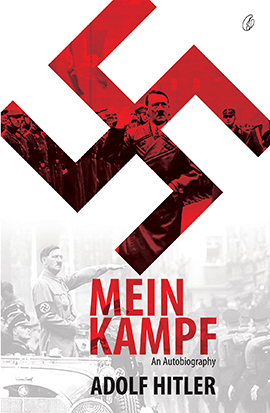Mein Kampf By:
Written during his imprisonment in the 1920s, ‘Mein Kampf ‘ chronicles Hitler’s formative years, his disenchantment with post-World War I Germany, and the rise of his nationalist and anti-Semitic ideologies. The book presents a chilling blueprint of the ideas that would later shape Nazi policies and World War II.
Delving into themes of nationalism, propaganda, and racial theory, Hitler articulates his political strategy and vision for Germany’s future. This controversial work provides crucial historical context for understanding the motivations behind one of the most devastating eras in human history.
Through its exploration of Hitler’s radical beliefs and manipulative rhetoric, “”Mein Kampf”” serves as both a warning and a grim reminder of the dangers of unchecked authoritarianism. The text challenges readers to reflect on themes of power, manipulation, and the consequences of ideological extremism.
The overall tone of the book is intense, provocative, and unsettling, offering readers a stark glimpse into Hitler’s psyche. Its historical significance has made it a subject of scholarly analysis, debate, and criticism over the decades. Despite its disturbing content, the book continues to be studied for its impact on global history and politics.
While deeply controversial, “”Mein Kampf”” has been examined by historians, political scientists, and readers seeking to understand the roots of totalitarianism and the tragic events of the 20th century. Its critical reception underscores the importance of confronting uncomfortable truths to prevent future atrocities.
By engaging with this text, readers gain a deeper understanding of the forces that shaped modern history. Though unsettling, it invites thoughtful consideration of themes such as leadership, propaganda, and the power of ideology.













There are no reviews yet.